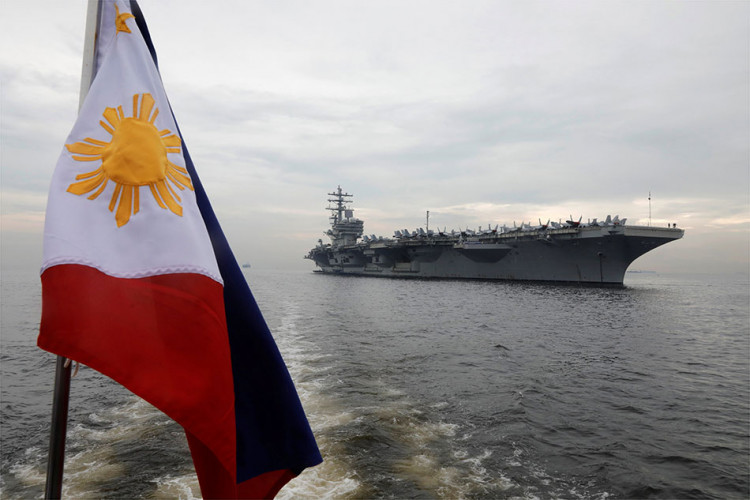Picking-up where U.S. secretary of state Mike Pompeo left-off last week, secretary of defense Mark Esper blasted China for bullying its neighbors and called on Asian countries to contain China through collective action.
In an online speech Tuesday, Esper emphasized the U.S. stands prepared to uphold its promise to maintain a free and open Indo-Pacific. He said Washington has a three-pillar strategy to do so: "preparedness, strengthening partnerships and promoting a more networked region."
Esper said America's partnerships with its Asian allies -- which he called "a strategic network our competitors cannot match," -- remain critically important to containing China and her ambitions.
"Make no mistake, the CCP (Chinese Communist Party) has been engaged in this sort of behavior for many years," according to Esper. "But today, its true intentions are on full display for all to see."
Esper assailed China for bullying nations around the Pacific, especially the six countries that also have legal claims to their territories in the South China Sea. He said Chinese military bases on islands it owns and man-made islands its built deprive these countries of fishing rights and trillions of dollars of oil and gas revenue.
Esper praised America's long-standing alliances with its long-time Asian allies Japan and Australia. He also praised other Asian countries cooperating with the U.S. on military and maritime security issues.
These countries include Indonesia, Malaysia, the Philippines, Brunei and Vietnam, all of which have legal claims in the South China Sea, most of which China claims it owns.
Esper said America's allies are increasing their cooperation with the U.S. in the face of Chinese aggression and are also working with each other.
The Indian Navy noted the kind of cooperation Esper was talking about when it tweeted Monday about its exercises with the US Navy. Indian warships had recently completed similar exercises with the Japanese and French navies, it said
Legal claims by the Philippines and Vietnam to their portions of the South China Sea received a boost last week when Pompeo announced the U.S. had formally rejected most of China's maritime claims.
"Beijing's claims to offshore resources across most of the South China Sea is completely unlawful, as is its campaign of bullying to control them," said Pompeo on July 13
He said the world won't allow China to treat the South China Sea as its maritime empire. He said "the United States stands with its Southeast Asian allies and partners in protecting their sovereign rights to offshore resources consistent with their rights and obligations under international law."
The U.S. gave muscle to both Pompeo's and Esper's attacks by deploying the Nimitz and Reagan carrier strike groups (CSGs) to the South China Sea. It was the first time in six years two aircraft carriers had converged on the South China Sea.
In the Philippine Sea, the USS Ronald Reagan (CVN-76) and its strike group were joined by warships from the Royal Australian Navy (RAN) and the Japan Maritime Self-Defense Force (JMSDF) for joint naval exercises. In the Indian Ocean, the USS Nimitz (CVN-68) and its CSG teamed up with four warships of the Indian Navy to practice communications and air defense drills.
"I want to highlight our increased defense cooperation with India, one of the all-important defense relationships of the 21st century," said Esper.






